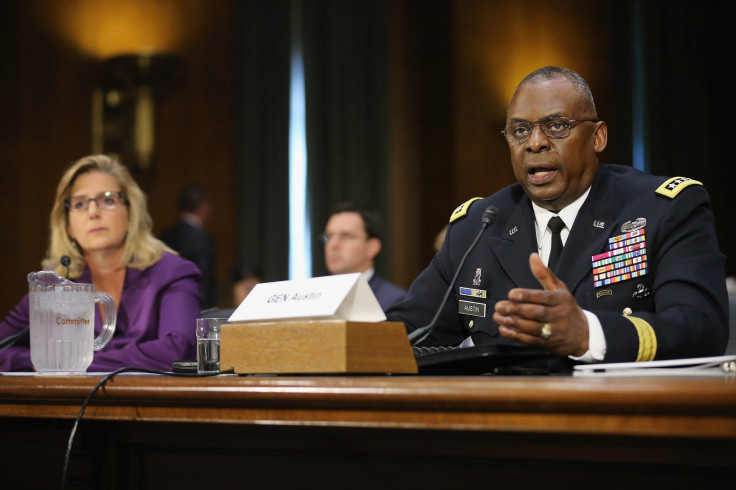Combating The Islamic State: '4 Or 5' US-Trained Syrian Rebels Are Fighting ISIS, Centcom Head Tells Senate Panel

Four or five U.S.-trained Syrians are fighting against the Islamic State militant group after having completed a program that graduated 54 people, Gen. Lloyd J. Austin III, the head of the United States Central Command, told a Senate panel Wednesday. The United States had originally planned to train up to 5,000 Syrian fighters to combat the group, which controls broad swathes of Iraq and Syria.
"The ones that are in the fight ... we're talking four or five," Austin, the top U.S. commander in the Middle East, testified during a hearing on U.S. operations against the Islamic State group, also referred to as ISIS or ISIL, before the Senate Armed Services Committee. The military was reviewing that training plan, but the initial target will probably not be reached, Austin said, Reuters reported.
The original fighters either fled or were killed. Some 100 to 120 other Syrian fighters were currently undergoing training, said Christine Wormuth, the Under Secretary of Defense for Policy, who also testified during the hearing.
Top US general: There are only 'four or five' US-backed Syrian rebels fighting http://t.co/2uwCO0lQus pic.twitter.com/AreBWA5I5J
— Business Insider (@businessinsider) September 16, 2015
The U.S. program to train Syrian rebels to fight ISIS has been controversial and questioned from the start about how fighters would be screened and vetted, where they would be trained and whether -- if they came up against them -- the U.S.-trained troops would fight the forces of Syrian President Bashar Assad. Training began in May, but by July, fewer than 60 had been trained, despite the goal of training 3,000 to 5,000 annually.
Since the fall of 2014, the United States has led a coalition of 14 other countries in conducting airstrikes against ISIS. The coalition has carried out more than 6,900 airstrikes that have been key not only to degrading the militant group's capabilities but also to help anti-ISIS forces on the ground, Austin said in what appeared to be an optimistic note.
"Today, although ISIL is still able to conduct attacks and incite terror, the organization’s overall capability has been disrupted," Austin said Wednesday. In order for the group to be defeated, however, "we will need to see stable and inclusive governments in place in Iraq and Syria, and we will have to curb the flow of foreign fighters, cut off ISIL’s resourcing and financing, and effectively counter the enemy’s information operations," he said.
© Copyright IBTimes 2024. All rights reserved.






















